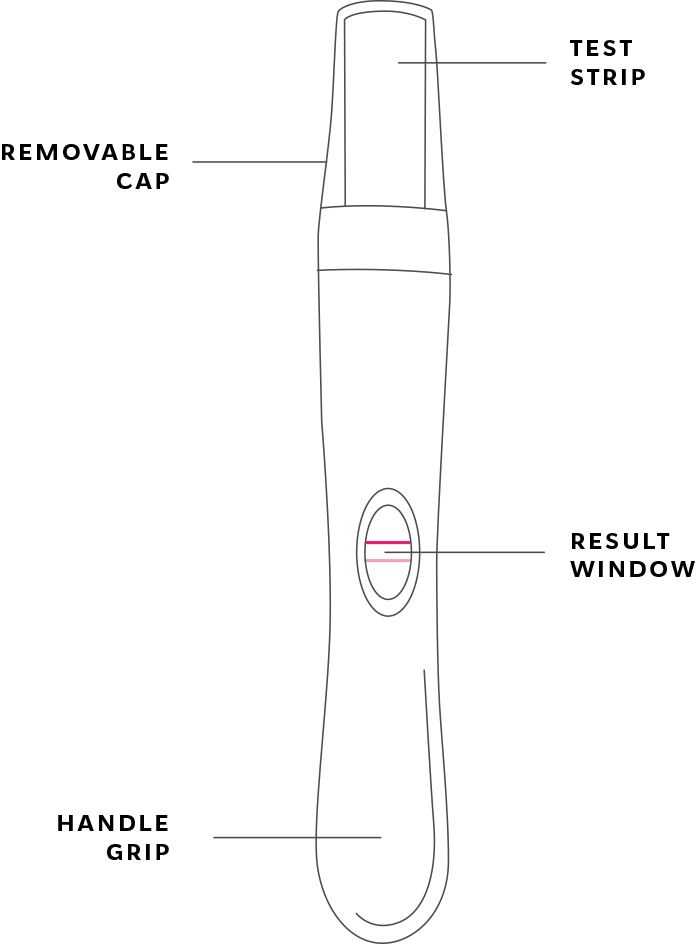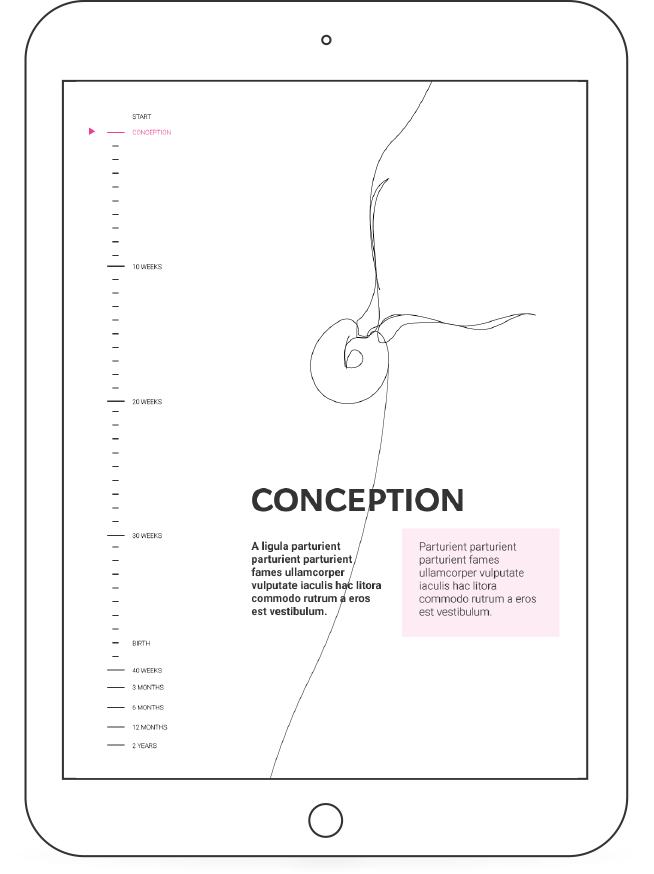Hear from real people who have been in your situation before.
If you're extremely tuned in to your body's rhythms, you may begin to suspect you're pregnant soon after conception. But most women won't experience any early pregnancy symptoms until the fertilised egg attaches itself to the uterine wall, several days after conception. Others may notice no signs of pregnancy for weeks and begin to wonder "Am I pregnant?" only when they miss a period. Below is a list of some of the first signs of pregnancy. You may experience all, some, or none of these symptoms of pregnancy:
Yes, it sounds like in the movies, but food cravings sometimes can be a sign of pregnancy. Don’t rely on them as a sure symptom (it may be all in your head, or even a sign that your body is low on a particular nutrient), but if cravings are accompanied by some of the other symptoms on this list, start counting the days from your last period.
If the skin around your nipples gets darker, you may have successfully conceived, though this may also signal a hormonal imbalance unrelated to pregnancy or be a leftover effect from a previous pregnancy.
About eight days after ovulation, you may experience implantation spotting, a slight staining of a pink or brown colour, as well as some cramping. This is caused by the egg burrowing into the endometrial lining. You might also see some spotting around the time you expect your period.
Once the embryo implants and begins producing the hormone human chorionic gonadotropin (hCG), you may find yourself going to the bathroom more often.
Feeling tired? No, make that exhausted. High levels of the hormone progesterone can make you feel as if you’ve run a marathon when all you’ve done is put in a day at school or college. Fatigue is a hallmark of early pregnancy, though probably not a sure fire symptom on its own.
If you’re pregnant, your breasts will probably become increasingly tender to the touch, similar to the way they feel before your period, only more so. Once your body grows accustomed to the hormone surge, the pain will subside.
You may notice that your sense of taste changes. Some women say they have a metallic taste in their mouth, others that they cannot stand the taste of coffee, tea, or a food they usually like.
If you’re lucky, morning sickness won’t hit you until a few weeks after conception. (A lucky few escape it altogether.) But as early as a couple of days following conception, you may begin feeling nauseated and queasy. And not just in the morning, either — pregnancy-related nausea can be a problem morning, noon, or night.
If you’re usually pretty regular and your period is late, it’s worth trying a pregnancy test. A missed period is the surest sign of pregnancy in a woman of childbearing age who usually has regular periods.
If you’ve waited to test until at least the first day of a missed period and a blue or pink line appears in the test window, you’re most likely to be pregnant. Make an appointment with your doctor to confirm and then read on in this site to see what support services are available in your community.
A pregnancy test may let you know, one way or the other, if you are pregnant. Here are answers to some of the most common questions about using pregnancy tests.
You can buy ‘home use’ pregnancy test kits at any chemist or pharmacy. We understand that this may be a vulnerable time to buy a kit, and we strongly suggest that if you feel you can’t do this on your own, have a support person, friend, family member or school counsellor to come with you, or buy one for you. The staff in most chemists are used to all different ages and stages of people buying pregnancy tests, so try not to worry too much about buying your kit. There are many different types of home pregnancy kits. Most kits are available over the counter and are inexpensive. But the cost depends on the brand and how many tests come in the box. You can also get free pregnancy tests at your local hospital, though the waiting time can be long. Ask about this at your hospital’s emergency department.
Most kits work in a similar way. Many instruct the user to hold a stick in the urine stream. Others involve collecting urine in a cup and then dipping the stick into it. At least one brand tells the woman to collect urine in a cup and then use a dropper to put a few drops of the urine into a special container. Then the woman needs to wait a few minutes. Different brands instruct the woman to wait different amounts of time. Once the time has passed, the user should inspect the ‘result window’. If a line or plus symbol appears, you are pregnant. It does not matter how faint the line is. A line, whether bold or faint, means the result is positive. New digital tests show the words ‘pregnant’ or ‘not pregnant’.
Most tests also have a ‘control indicator’ in the result window. This line or symbol shows whether the test is working properly. If the control indicator does not appear, the test is not working properly. You should not rely on any results from a home pregnancy test that may be faulty.
Most brands tell users to repeat the test in a few days, no matter what the results. One negative result (especially soon after a missed period) does not always mean you’re not pregnant. All home pregnancy tests come with written instructions. Most tests also have toll-free phone numbers to call in case of questions about use or results.
From the very beginning of your pregnancy, the fetus produces a hormone called hCG, or, human chorionic gonadotropin. This hormone is present in your urine if you are pregnant and increases as your pregnancy progresses, peaking at around 8-11 weeks, before dropping to a lower level at 12 and 16 weeks. Some pregnancy test kits can detect hCG levels as low as 10 or 25mIU/ml. If pregnant, at 10DPO (days past ovulation) you may be able to detect around 25mIU, at 12DPO 50mIU and 14DPO 100mIU.
Home pregnancy tests have been shown to be over 99% accurate in lab tests. It is more likely you will get a false negative than a false positive if there was an error with the test.
As mentioned above, pregnancy test kits are designed to detect levels of hCG produced by your body if you are pregnant. Your body may be producing hCG before your period is due, but it is ideal to test on the first day of your missed period. If you were to test earlier than the first day of your missed period, the result might be incorrect. It may show a negative result if your hCG levels are not yet high enough to detect the pregnancy, or it may show a positive result and not develop into a true pregnancy due to the incidence of spontaneous abortions, which can occur before your period is due.
The pregnancy hormone hCG is usually at its highest levels early in the morning, so especially if you are early in your pregnancy, this is when it is the best time to test. It is important to note that excessive fluid intake before taking the pregnancy test can actually dilute hCG, and this can make the result hard to read.
If you are taking antibiotics, the contraceptive pill, or painkillers, this should not affect the result of the test.
It’s normal for the result on the pregnancy test to be either fainter or darker than the control line. The reason it may be fainter could be due to less hCG in your urine, especially very early in your pregnancy. It may be darker if your pregnancy is more progressed. Occasionally the test may display a ‘shadow’ line where the positive result should be; disregard this if you cannot see it when holding the test at arm’s length away from you.
The test result should be read from 3 minutes and no later than 10 minutes. If any lines do appear after 10 minutes, it is still a negative result and must be disregarded. If you read the test sooner than 3 minutes, it may also be inaccurate as it has not had enough time to work.
It is unlikely that this will happen but, if it does, disregard the test. It may be due to not enough urine on the absorbent pad, too much urine on the absorbent pad, or the test was not held correctly in the stream of urine. Repeat the test, carefully following the instructions as in the above question on how to use the test.
If the result of your test was negative and your period still hasn’t started after a few days, test again. You may have miscalculated your cycle dates and/or the hCG level may be too low to detect. If you still receive a negative result after the second test and still have no period, consult your doctor. Some women find that they do not get a positive result as soon as others, and some have only been able to detect pregnancy with a blood test. Everyone is different; however, if you are concerned, do see your doctor.

The first thing to do is take a deep breath (you may have already done that!), try to relax, grab a cup of tea and know you are not alone.
The next step is yours, to be made alongside significant loved ones or trusted support people. If you continue with your pregnancy, our site will show you how to find help wherever you are and access education throughout your pregnancy and parenting experience. Brave Foundation does not comment on the choice debate.
Continue to look around the Brave Foundation site, particularly the maps, to see what community support, maternity support and educational options are available in your community. You can contact Kids Helpline if you need immediate professional counselling support on 1800 55 1800 and kidshelpline.com.au. Brave Foundation has partnered with Kids Helpline to provide this support to expecting and parenting teens. Someone is ready to listen on the end of the line right now.
At any time you can begin an online chat with us, and we will respond within the next working day. At Brave we all have a personal connection with teenage pregnancy and parenthood. We will hold your hand as we find what support and educational services are available to help you in Australia. Simply email us at cupoftea@bravefoundation.org.au. The kettle is on.

Once reality sets in, talk with your school about a personalised education pathway plan as you journey forward in your pregnancy. This will include your new needs as you continue your pregnancy and into becoming a parent. Things to write down and talk about are transport, financial and maternity leave planning. All new mums need maternity leave, and it’s good to get a plan around your education and future, even though it seems like a little while off before you’re a parent! This gives you and your baby countless opportunities for a great life. Things to consider:
It is really important to make yourself 3 personal promises now for after you have your baby. Write down these promises with your teacher or chaplain, and then ask them to help you to work out how to get there. As Bernie Black’s (the CEO of Brave Foundation) year 10 teacher said to her, ‘the journey might be different now, but the destination can stay the same.’ This is the same with you.
An example of three promises from Bernie Black:
These promises can be anything, from becoming a hairdresser, to enrolling in a TAFE course, writing your own story, to becoming Prime Minister! We encourage you at Brave Foundation to write these down somewhere special, share with a trusted person and keep this to look at as the years roll on. You will be able to show this to your child one day and tell them your story!
Being a parent is one of the most rewarding and challenging roles we can experience in our lifetime. It’s full of ups and downs, times of total joy and exhilaration, times of despair and complete unknowing. Very few experiences in life hold such diversity, challenge and impact as that of parenting.
Being a parent is an extremely demanding job and most of us come to it with no qualifications and can sometimes have little support, especially if the pregnancy was unplanned. Parenting is something that never has a destination and it is not something that we ever get to ‘tick off’, regardless of how we enter pregnancy! Parenting is a journey, and it is how we each choose to travel the parenting road that shows its reward. There is no doubt that we grow as parents and, as our babies grow into children, we learn together.
At Brave Foundation we believe that no matter your situation of pregnancy or parenting, you have the opportunity for a great life and future with your child.
In this epic journey of parenting, regardless of our circumstances, all of us love to know what milestones our babies are up to and how other mothers and their support people may be feeling at this time. We can all encourage and support each other as we grow as parents and important people in shaping our children’s lives.
Please read and watch the stories of many people impacted in the village of our communities – young women, men, parents, aunts, uncles, friends, teachers and doctors. We are here to share the journey and hold your hand at any point as you journey towards the future you and your baby deserve.
Experiencing unplanned pregnancy can be a difficult time for young women, as well as their family, partner, friends and significant support people. At Brave Foundation, we encourage you to share your personal story of unplanned pregnancy with us.
This will help provide an insight into unplanned pregnancy and parenting and the issues associated with this experience. It will also help others to see how you managed in your unplanned pregnancy, and what support you sought.
If you would like to submit your story, please send it to:
mystory@bravefoundation.org.au or threepromises@bravefoundation.org.au
While all submissions will be considered, some topics that may be useful to think about are:
Due to the number of stories we receive, we will be unable to post them all. However, stories posted will reflect a diverse range of personal experiences with unplanned pregnancy and parenting. These posts will be rotated.
Each submission will be considered in the following terms:
“The journey might be different now, but the destination can stay the same”
Share your journey with us threepromises@bravefoundation.org.au
We've built a timeline just for you. So no matter where you are in your journey, you'll be able to locate the information that's relevant to you - anytime.
View Interactive Timeline
Life can be tough, especially when things don’t go to plan. It’s important to begin building a good support network of people you can trust, who will be by your side throughout this journey. It’s important to remember that you don’t have to be alone!

An interactive timeline guiding you through every step of pregnancy.
Better Health - Teenage PregnancyInformation for expecting and parenting teens, from the Victorian Government.
No downloads have been added.